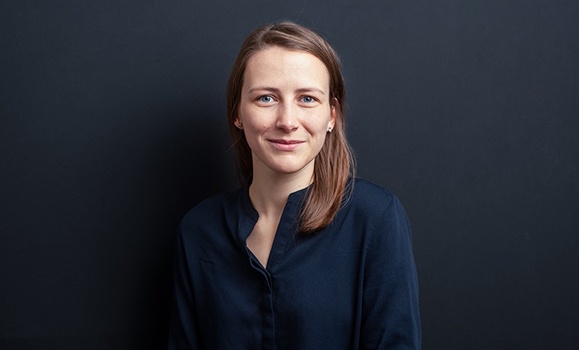Caroline Merner is part of the initial group of 20 students to receive the prestigious McCall MacBain Scholarship, which provides full funding to pursue a master’s or professional degree in all disciplines at McGill University and access to mentorship, an interdisciplinary learning program and a global community. The scholarship recognizes exceptional students who aspire to lead with purpose and make a positive impact in the world. Merner recently completed her Master of Public Policy at McGill and spoke to DAL Magazine about her experiences.
Q: What are some highlights from your McCall MacBain Scholar experience?
A: The first highlight of my McCall MacBain scholarship experience were the friendships formed with the fellow cohort members. We quickly became a community. Whether gathering for a park picnic, Mont Royal hike, drag brunch or our weekly leadership sessions, our different degrees and diverse perspectives brought us together. I really appreciated the supports built into our scholars’ program. Having access to a life coach, mentor, academic advisor, and leadership session facilitators eased the transition in and out of academic life. The scholarship actively expands its support for students in meaningful ways. Another highlight was growing an incredible network of ambitious changemakers. As the first McCall MacBain Scholarship alum, I traveled to New York for the Global Fellowships Forum to meet alumni from scholarships around the world. Our hope was to collaborate on greater impact, through shared programs and best practices. I grew an incredible network of ambitious changemakers, which is invaluable!
Q: How did Dalhousie influence the path you’ve taken?
A: My time at Dal studying Environment, Sustainability & Society and International Development Studies shaped who I am. I developed my understanding of climate change as a collective action problem that requires systems change and formed the skills I use every day as a leader and organizer for climate justice. From Divest Dal to the IDS student society, I joined like-minded community committed to driving change, locally and globally. In my final year, I co-directed the Dalhousie Student Union Sustainability Office and witnessed the power of collective voice in student advocacy. We supported and funded dozens of initiatives—from the campus farmers’ market to a sustainable food cart, the Loaded Ladle to an environmental racism working group. Memories from classes that still stick with me are the evening Sustainability guest lectures, thesis writing, a capstone project, and an international climate negotiation simulation. I’ve had the honour of coming back as an alum in the audience and to speak.
“Climate change is the greatest threat of our generation. It is an issue of injustice since those most affected contribute the least to the problem.”
Q: Tell us why you are passionate about climate action?
A: Climate change is the greatest threat to our generation. It is an issue of injustice since those most affected contribute the least to the problem. We can all play a role, as facing the climate crisis requires collective action. I’ve always been passionate about connecting people to advocate for change, whether implementing actions on the ground or influencing decision-makers in international negotiations. After graduating from Dal, I moved to Vancouver and met Marina Melanidis, who I travelled with to the Arctic through the organization Students on Ice. We wanted to engage youth in climate action and started a mentorship program called Climate Guides. With dedicated team members, funding, and a couple of years, it evolved into the global organization Youth4Nature, mobilizing young changemakers to lead for nature and climate. While the climate crisis is daunting, mobilized community is powerful and joyful!
Q: What inspired you to decide to return to school?
A: I decided to do my Master of Public Policy to grow a foundation in policymaking and to be a stronger climate advocate. I learned helpful skills for the climate policy space, such as stakeholder management, policy evaluation, evidence-based approaches, and lots of practice writing policy briefs. The lessons from this intensive one-year program will serve me to be a better advocate to decision-makers or as a future decision-maker.
Q: What are your plans after graduation?
A: Since finishing my master’s, I’ve moved to Europe with my partner. I am newly the Project Manager for the Future of Climate Cooperation, based at the Blavatnik School of Government at Oxford University and in partnership with the ClimateWorks Foundation. I work at the intersection of climate policy, advocacy, and engagement. I also plan continue my involvement with Youth4Nature, and I’ll volunteer on the board of the MakeWay Foundation, an organization that builds partnerships and solutions to help nature and communities thrive together. I’d like to contribute to the climate movement the best I can.
Q: What are your hopes for the future of the planet?
A: My hope for the future is to see world leaders act with the urgency the climate crisis requires, not by 2050, but in this next decade. Collectively, we need to drastically decarbonize, transition off fossil fuels, and support workers to find good green jobs. I deeply believe that effective international cooperation is essential to mobilizing ambitious climate action.
Q: Do you have any advice for potential applicants to the McCall MacBain Scholars program?
A: My advice is to trust yourself and to tell your story. I believe the scholarship is looking for leaders with integrity and potential to grow. If you want to make a difference in your community, whether locally or globally, this program is for you. Be open to sharing and being fully yourself!
This story appeared in the DAL Magazine Fall 2022 issue. Flip through the rest of the Fall 2022 issue using the links below.
Comments
comments powered by Disqus

